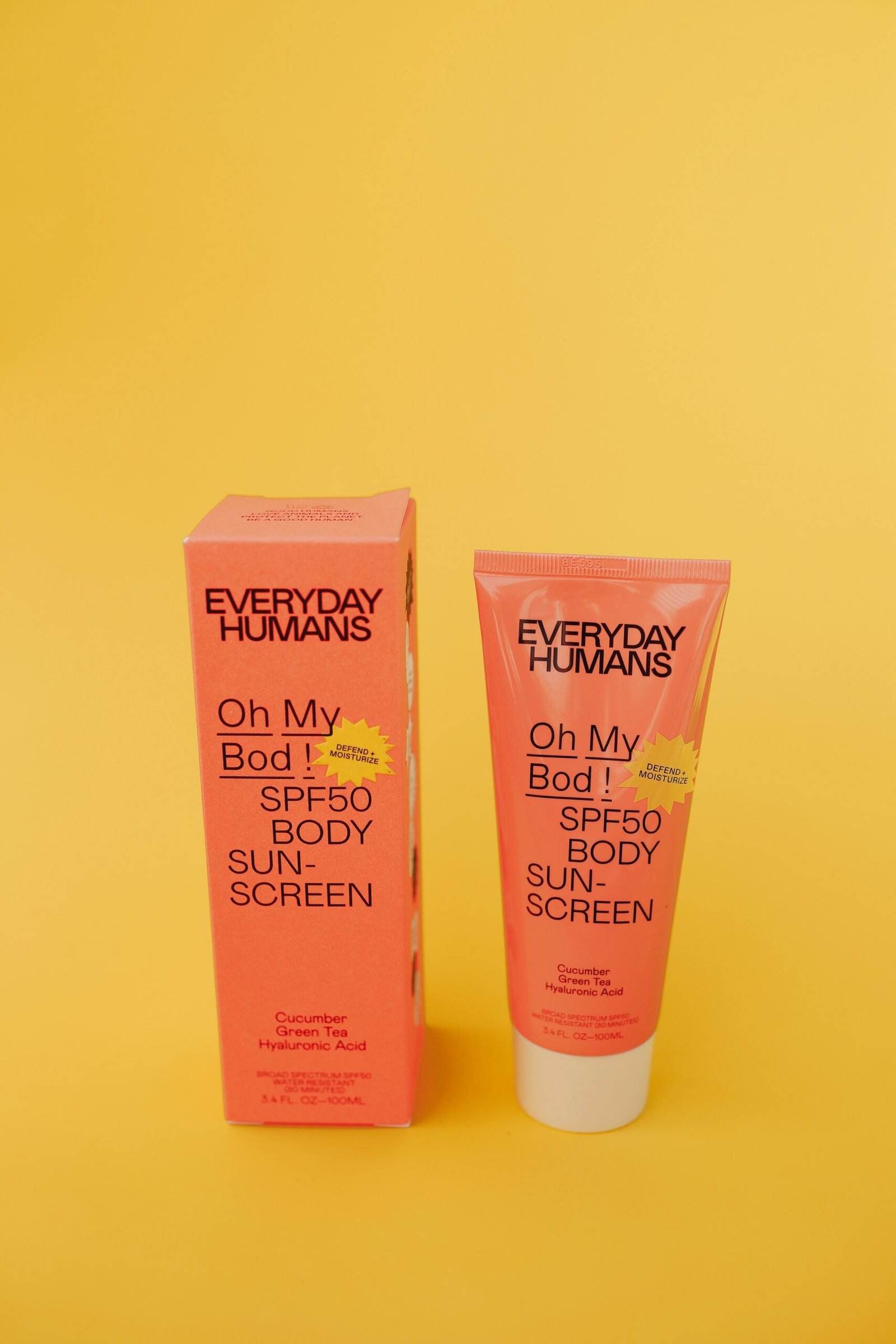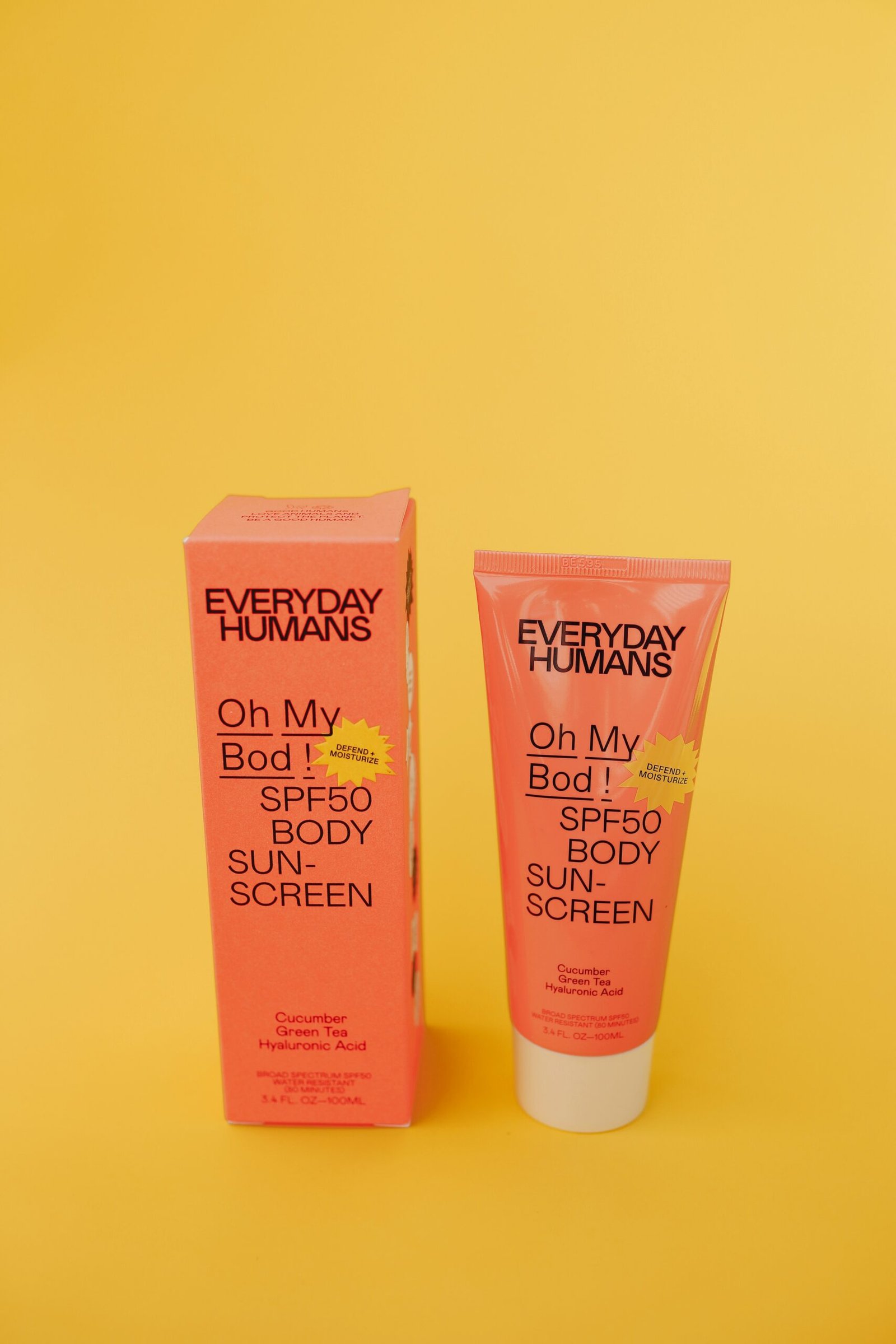
Introduction to Sunscreen and Its Importance
Sunscreen, often referred to as sunblock or sun cream, is a topical product designed to shield the skin from the harmful effects of ultraviolet (UV) radiation. UV radiation, which comes from the sun, is categorized into UVA and UVB rays. Both types of rays pose a significant threat to skin health, contributing to sunburn, pigmentation, and more critically, skin cancer. The primary purpose of sunscreen is to act as a barrier, absorbing or reflecting these harmful rays, thus preventing them from penetrating the skin and causing damage.
Daily application of sunscreen is crucial, regardless of the weather or season. Many people mistakenly believe that sunscreen is only necessary on sunny days or during the summer. However, UV rays can penetrate clouds and even glass, meaning that your skin is exposed to potential harm all year round, even on overcast days or while indoors. Additionally, snow, sand, and water can reflect UV rays, increasing exposure and the risk of skin damage.
The importance of using sunscreen with a Sun Protection Factor (SPF) of 30 or higher cannot be overstated. SPF 30 blocks approximately 97% of UVB rays, offering a significant level of protection. Lower SPF values provide less protection, increasing the likelihood of skin damage over time. Regular use of sunscreen with adequate SPF not only helps prevent immediate issues like sunburn but also protects against long-term effects such as premature aging, hyperpigmentation, and the development of skin cancers.
Incorporating sunscreen into your daily skincare routine is a simple yet highly effective measure to safeguard your skin’s health. By consistently applying sunscreen, you can mitigate the adverse effects of UV radiation, maintaining your skin’s integrity and reducing the risk of severe dermatological conditions. Whether it’s a sunny, rainy, or snowy day, make sunscreen application a non-negotiable part of your daily regimen.
Understanding SPF: What Does SPF 30 Mean?
Sun Protection Factor, commonly known as SPF, is a critical metric in evaluating the effectiveness of sunscreen in shielding your skin from the harmful effects of ultraviolet B (UVB) rays. SPF is an indicator of how well a sunscreen will protect your skin from UVB radiation, which is a primary cause of sunburn, skin damage, and potential skin cancers. An SPF rating specifically measures the fraction of UVB rays that can reach the skin. For example, SPF 30 allows only 1/30th of UVB rays to penetrate the skin, providing approximately 97% protection.
Choosing a sunscreen with SPF 30 or higher is pivotal for comprehensive skin protection. While SPF 15 can block about 93% of UVB rays, the incremental increase to SPF 30 significantly enhances protection, emphasizing the importance of opting for higher SPF levels. This is particularly crucial for individuals with fair skin, those living in regions with intense sun exposure, or anyone spending extended periods outdoors.
Higher SPF ratings, such as SPF 50, offer marginally better protection, blocking about 98% of UVB rays. However, no sunscreen can block 100% of UVB rays, making it essential to complement sunscreen application with other protective measures, such as wearing hats, sunglasses, and seeking shade during peak sun hours.
Understanding SPF and its role in sun protection is fundamental to maintaining skin health. UVB rays can cause immediate effects, like sunburn, and long-term consequences, including pigmentation and premature aging. By consistently applying a sunscreen with SPF 30 or higher, you effectively reduce the risk of these adverse outcomes, ensuring your skin remains healthy and protected.
Incorporating SPF 30 or higher into your daily skincare routine is a proactive step towards preserving your skin’s integrity and appearance. Whether it’s sunny or cloudy, UVB rays can penetrate through clouds, making daily sunscreen application an indispensable habit for anyone committed to skin health.
The Dangers of UV Radiation
Ultraviolet (UV) radiation from the sun is a significant concern for skin health due to its harmful effects. UV radiation is composed of two main types: UVA and UVB rays. Both types contribute to skin damage, but they affect the skin in different ways. UVA rays penetrate the skin more deeply, leading to premature aging and wrinkling, while UVB rays primarily cause sunburn and are more closely linked to the development of skin cancer.
Short-term exposure to UV radiation can result in sunburn, a visible sign of skin damage characterized by redness, pain, and swelling. Beyond these immediate effects, UV radiation can cause subtle but significant harm at the cellular level. Exposure to UV rays can lead to DNA damage in skin cells, which, if not properly repaired, can result in mutations. These mutations are a critical factor in the development of skin cancer, including melanoma, the most aggressive form of skin cancer.
Long-term exposure to UV radiation has cumulative effects that further underscore the importance of daily sunscreen use. Chronic exposure accelerates the skin’s aging process, leading to the appearance of fine lines, wrinkles, and pigmentation issues such as dark spots and uneven skin tone. Additionally, prolonged UV exposure weakens the skin’s immune response, making it more susceptible to infections and other skin conditions.
Protecting the skin from UV radiation is essential for maintaining skin health and preventing long-term damage. Daily application of SPF 30 or higher sunscreen forms a protective barrier that reduces the penetration of harmful rays, thereby minimizing the risk of sunburn, DNA damage, and skin cancer. Understanding the dangers of UV radiation highlights the critical need for consistent and adequate sun protection to safeguard our skin’s health.
Preventing Skin Pigmentation and Dark Spots
Daily application of SPF 30 or higher sunscreen plays a crucial role in preventing skin pigmentation and the formation of dark spots. UV radiation from the sun is a primary factor in causing hyperpigmentation, which manifests as patches of skin that are darker than the surrounding areas. This occurs because UV rays stimulate the production of melanin, the pigment responsible for skin color. When the skin is exposed to UV radiation, melanocytes, the cells that produce melanin, become more active and generate excess pigment, leading to uneven skin tone and dark spots.
There are two types of UV rays that affect the skin: UVA and UVB. UVA rays penetrate deeply into the skin and are primarily responsible for premature aging and hyperpigmentation. They can even penetrate through windows and clouds, making it essential to wear sunscreen daily, regardless of the weather. UVB rays, on the other hand, are responsible for sunburn and can also contribute to skin pigmentation issues. Both types of rays can cause DNA damage, which may lead to long-term skin problems.
Sunscreen with SPF 30 or higher acts as a protective barrier, absorbing and reflecting harmful UV radiation before it can penetrate the skin. By blocking these rays, sunscreen helps to prevent the overstimulation of melanocytes, thereby reducing the risk of hyperpigmentation and dark spots. Additionally, many sunscreens now contain ingredients such as antioxidants and skin brighteners that further aid in protecting and improving the skin’s appearance.
Using a broad-spectrum sunscreen is essential for comprehensive protection against both UVA and UVB rays. Consistent application of SPF 30 or higher sunscreen not only prevents immediate sun damage but also mitigates long-term effects, such as pigmentation and dark spots, ensuring healthier and more even-toned skin over time.
Combating Premature Aging with Sunscreen
Exposure to ultraviolet (UV) radiation is one of the primary factors contributing to premature aging of the skin, a phenomenon often referred to as photoaging. Photoaging manifests through various signs such as wrinkles, fine lines, and loss of skin elasticity. According to the American Academy of Dermatology, up to 90% of visible skin changes commonly attributed to aging are caused by sun exposure. UV radiation accelerates the breakdown of collagen and impairs the synthesis of new collagen, leading to a weakened skin structure.
Several studies have substantiated the anti-aging benefits of daily sunscreen application. A pivotal study published in the journal “Annals of Internal Medicine” revealed that individuals who applied sunscreen daily exhibited 24% less skin aging than those who did not. This study underscores the importance of consistent sunscreen use in preserving youthful skin. By blocking harmful UV rays, sunscreen helps maintain the skin’s collagen network, thereby reducing the appearance of fine lines and wrinkles.
Dermatologists emphasize the importance of using a broad-spectrum sunscreen with an SPF of 30 or higher. Broad-spectrum sunscreens provide protection against both UVA and UVB rays. While UVB rays are primarily responsible for sunburn, UVA rays penetrate deeper into the skin and are a major contributor to premature aging. Thus, a broad-spectrum sunscreen is essential for comprehensive protection.
Expert opinions consistently advocate for the daily use of sunscreen as a preventive measure against premature aging. Dr. Doris Day, a renowned dermatologist, states that “sunscreen is the single most effective anti-aging product you can use.” Regular application not only protects the skin from immediate damage but also from the cumulative effects of UV exposure over time.
Incorporating sunscreen into your daily skincare regimen is a proactive step towards combating premature aging. By shielding the skin from harmful UV radiation, sunscreen helps preserve the skin’s youthful appearance and vitality. As the evidence suggests, consistent and correct application of SPF 30 or higher sunscreen is a cornerstone of an effective anti-aging strategy.
Choosing the Right Sunscreen for Your Skin Type
Selecting the appropriate sunscreen is crucial for effective skin protection, especially considering the diverse range of skin types. For individuals with oily skin, opting for a sunscreen that is oil-free and non-comedogenic is essential to prevent clogged pores and breakouts. Gel-based or water-based sunscreens are often effective for this skin type, offering a lightweight feel without exacerbating oiliness. Ingredients like zinc oxide and titanium dioxide can be beneficial as they provide broad-spectrum protection while maintaining a matte finish.
For those with dry skin, a sunscreen that includes moisturizing ingredients such as hyaluronic acid or glycerin can help maintain skin hydration. Cream-based sunscreens are typically more suitable, providing both sun protection and added moisture. It’s important to avoid formulations containing alcohol or fragrances that can exacerbate dryness and irritation.
Sensitive skin requires extra care, making it imperative to choose sunscreens that are hypoallergenic and free from harsh chemicals. Mineral sunscreens, also known as physical sunscreens, are often recommended for sensitive skin as they contain zinc oxide or titanium dioxide, which are less likely to cause reactions. Avoiding sunscreens with parabens, sulfates, and synthetic fragrances can also help reduce the risk of irritation.
For combination skin, a balanced approach is necessary. Sunscreens that are lightweight and non-greasy can help manage the oily areas, while still providing sufficient hydration to the drier parts of the face. Products labeled as suitable for all skin types or specifically formulated for combination skin can offer a good middle ground.
Mineral sunscreens provide a physical barrier against UV rays and are generally suitable for all skin types, including sensitive skin. Chemical sunscreens, on the other hand, absorb UV radiation and often offer a lighter feel, which can be preferable for those with normal to oily skin. However, individuals with sensitive skin might find chemical sunscreens irritating due to the active ingredients used.
Understanding your skin type and selecting a sunscreen that caters to its specific needs is essential for effective sun protection and maintaining overall skin health. By paying attention to the ingredients and formulation, you can ensure that your sunscreen not only shields your skin from UV damage but also supports its unique requirements.
How to Properly Apply Sunscreen
Applying sunscreen correctly is crucial to ensuring your skin receives maximum protection from harmful UV rays. To begin with, it is essential to use an adequate amount of sunscreen. Dermatologists recommend using about one ounce, or a shot glass full, to cover the entire body. For the face, a nickel-sized dollop should suffice. It is important to apply the sunscreen generously and evenly, making sure to cover often-missed areas such as the ears, neck, and the tops of the feet.
Equally important is the timing of application. Sunscreen should be applied at least 15 to 30 minutes before sun exposure to allow it time to properly absorb into the skin. This will ensure that the protective barrier is fully effective when you step outside. Reapplication is another critical aspect of effective sunscreen use. Sunscreen should be reapplied every two hours, or more frequently if you are swimming or sweating, as water and perspiration can diminish its effectiveness.
Incorporating sunscreen into your daily skincare routine can be seamless with some simple adjustments. For instance, consider using a moisturizer that contains SPF 30 or higher as part of your morning regimen. This can simplify your routine while ensuring your skin is protected. Additionally, keep a travel-sized sunscreen in your bag for easy reapplication throughout the day. For makeup wearers, there are SPF powders and setting sprays available that can be applied over makeup, providing an added layer of protection.
Remember, sunscreen is not just for sunny days. UV rays can penetrate through clouds and windows, making daily use essential regardless of the weather. By following these tips and making sunscreen a non-negotiable part of your daily routine, you can significantly reduce the risk of UV damage, pigmentation, and premature aging, ensuring healthier skin in the long run.
Common Myths and Misconceptions About Sunscreen
Many people hold misconceptions about the necessity and efficacy of sunscreen, which can lead to inadequate skin protection. One prevalent myth is that sunscreen is only required on sunny days. However, up to 80% of UV rays can penetrate through clouds, meaning that even on overcast days, your skin is still susceptible to damage. Therefore, applying SPF 30 or higher daily is essential, regardless of the weather.
Another common belief is that individuals with darker skin tones do not need sunscreen. While it is true that higher levels of melanin provide some natural protection against UV radiation, it is not sufficient to prevent skin damage, pigmentation, or the risk of skin cancer. Studies have shown that people with darker skin tones can still suffer from sunburns and are not immune to the harmful effects of UV rays. Hence, sunscreen use is crucial for everyone, irrespective of skin color.
Some also think that using sunscreen will prevent the body from obtaining sufficient vitamin D. While it is important to maintain adequate vitamin D levels, the minimal amount of sun exposure required for vitamin D synthesis can be achieved without compromising skin protection. Experts recommend obtaining vitamin D through diet and supplements rather than risking UV damage.
There is also a misconception that applying sunscreen once a day is enough. In reality, sunscreen needs to be reapplied every two hours, or more frequently if swimming or sweating, to ensure continuous protection. Failing to do so leaves the skin vulnerable to UV damage.
Lastly, some believe that high SPF numbers provide complete protection, leading to a false sense of security. While higher SPF offers more protection, no sunscreen can block 100% of UV rays. It is equally important to adopt additional protective measures such as wearing hats, sunglasses, and seeking shade during peak sun hours.
In dispelling these myths, it becomes clear that sunscreen is a vital part of daily skincare for everyone. Understanding and addressing these misconceptions can help promote better sun protection practices and overall skin health.


